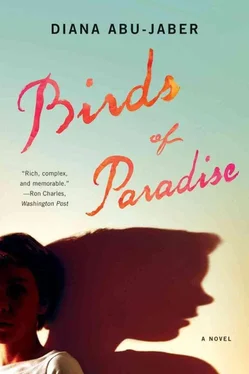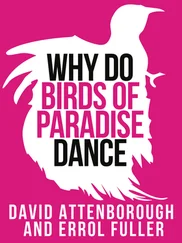FELICE CONTINUED DROPPING ACID, loving the delicious, curling sensation of the drug sinking into her system, the sense that she was afloat within her own body. She and Berry lay side by side on the sand, giggling and listening to the trickle of the ocean. Their hands swam back and forth in front of their eyes, leaving contrails. The girls whispered, murmuring, “Wishh, wishh, wishhh…” It all seemed hilarious: Felice enjoyed the shifting, transitory feelings.
They slept out on the beach, but Felice’s life improved with her new friend. They’d met in a crowded hall on a go-see for Gap and shared Berry’s caramel Frappuccino. Berry had grown up in North Jersey in a three-story pale blue house with black shutters and gables and gingerbread trim (Felice had seen the photograph) and she knew all sorts of valuable things. Berry and Reynaldo came with their own problems of course, like their bulimia. Reynaldo’s habit (or profession) of following men out of the bars. So you never knew what he’d look like the next morning, covered in bruises that turned black, bruises the size of eggplants on his chest and neck, and once his eye bulged and leaked blood and he had to have part of his eyelid sewn back on.
But they were also smart. Berry, for example, taught her to shoplift at nicer places, like the Lord & Taylor or the Saks Fifth Avenue at Bal Harbour. Berry and Felice were careful not to return to the same store, never to steal more than an item or two at a time. The salesgirl would ring up new jeans, a silk tank top, and baby doll dress — snipping off the alarm tags — then suddenly Berry would decide that she needed to try everything on again: she’d sneak out of the dressing room while Felice sent the clerks all over the store on errands for matching belts and handbags and scarves.
“They expect you to shoplift at Swim N’ Stuff and the secondhand places — those guys’re just waiting to catch you,” Berry explained. “Not as much at Lord & Taylor.”
The staff in these palatial stores did seem resolutely disinterested, swanning around, all lethargic elegance. Felice sometimes had the impression that they were in on a grand collusion — the sales staff masquerading as wealthy women, Berry and Felice masquerading as shoppers.
Each night around 1 a.m. they’d walk over to one of the cavernous places like Mansion dressed in new jeans and heels that they kept in a locker at the Nineteenth Avenue Y. First Berry, then Felice ducked under the velvet rope, flashing silver leather wristbands that Mauricio — the head bouncer — had given them. They never paid for cover or drinks. Felice wasn’t modeling much — but that was even better, Berry told her — she was pre-discovered. Overhead, images of singers and volcanic landscapes and smoking cars splayed across fifty-foot screens; the space rang with an industrial, metallic din, and the girls’ throats ached from screaming into each other’s ears. The best part of those places was that only silver wristbands were allowed on certain floors. It was as if the desires of the earth had been boiled down and Felice and Berry were part of it — the best thing anyone could ever be. They danced on the mobbed gleaming floor, while regular people could dance only on the stairs and upper levels, staring down at them.
It was fun to go to shoots when she was fourteen and be a sort-of model (the only real ones appeared in certain magazines — on the covers ). People gave her clothes from new designers and paid her with hundred-dollar bills, all for letting them do stupid things to her hair and face. But she hadn’t counted on how much she would hate modeling. The soul-suck of standing around, of sets and steaming lights and fussy stylists and the photographers barking commands: More life in the eyes — no— intelligent life. Give me something! And that one designer — his horrible, thick, old-fashioned clothes — rayons and orlons that stuck to her skin, crackling with static. He walked onto the set in the middle of shooting (Felice was supposed to look like she was pumping gas), grabbed the flesh of her upper arm, and announced that she was “heinous.” She couldn’t be a real model, because she was 130 pounds and only five feet nine. Both the New York scouts wanted her to lose at least ten pounds. She refused to even try. Her life was precarious and she didn’t like the confusion she felt about dieting and just not having enough to eat. The scouts also wanted to take endless Polaroids of her, to fly her to New York or Milan, to paint streaks in her hair, and make her go live in one of those retards’ palaces off of Collins — three-bedroom apartments packed with ten other skinny, starving, tall girls. Bulimia ballrooms. It was just another version of the life she’d left behind in school: pretty spoiled girls and too much money. She started to dream about Bethany, about the seraphic eyes watching her from the driver’s seat, the one night she’d passed through judgment. Felice didn’t want to lose that moment.
SHE WAKES TO an ivory sky; over the water to the east, a plane tows a banner advertising the dance party at Automatic Slim’s. The air feels mossy, the sun rising in layers of new light, and Felice slowly sits up, her bones stiff. She inclines toward Emerson and examines his sleeping face. His size and his manner make him seem older than he is. Asleep, he has a boy’s face with a softly curving mouth and pale, almost transparent eyelashes and brows. She admires the fact of his strength: it strikes her as a kind of luxury.
If only, Felice thinks. If only I wanted to kiss him.
“Hey.” Emerson is awake, gazing at her from the grass.
“Hi,” she says moodily: she can’t help it.
“What’re you thinking about?”
She scowls, then tears up a handful of coarse grass and sprinkles it over Emerson’s head like confetti. “What. Is. It. With. You?”
He grins and bats away the grass. “I’m starving . It’s seriously time for food.”
Emerson says they can get breakfast at his friend Derek’s place. She thinks again — a strand of anxiety — that she has to get work. But as they start up Michigan Avenue, Felice realizes that it feels good to let someone steer the course of the day. What else would she be doing? Smoking on the beach? She’ll just stop for coffee, maybe a cigarette — then she’ll get going. It’s early and the air is soft as sea foam. As they walk, Emerson talks about his parents. “Jim — my dad — he was Mr. Activist Guy. But originally he was an engineer — he worked on the rockets at Cape Canaveral. Then he, like, became a hippie and moved to Fort Lauderdale. Totally a dad by accident. My mom too, pretty much. Neither of them was so into it.”
“Did you love them and all?” Felice feels as if, walking this way, hands in pockets, staring at the pebbly sidewalk, Emerson carrying her board, that she could ask or tell him anything.
He shifts the board to his other arm and the back of his hand brushes hers. “Well, yeah,” he says finally. “We fought a lot, but I guess we loved each other — me and Jim and Mandy, and my brother Tosh.”
“I have a brother too,” Felice says. “Stan.”
“Yeah? Did you used to fight?”
“Not really — not so much back before. But he got pretty pissed at me — I’m sure he hates me by now.” She smiles.
“Not exactly your fault you got born.”
“Well, he didn’t exactly beg to have a little sister, either.” But that’s not what she’d meant. Scuffling her sneakers in the white dust, she feels protective of Stanley, who’d seemed to Felice — even back when he was fifteen and she was eleven — heroic and slightly removed, reading about stuff like feeding the poor and cleaning the environment. “So, if you all loved each other,” she says, barely able to stop herself from adding, so fucking much, “so then why are you, like, living in the gutter and all?”
Читать дальше












